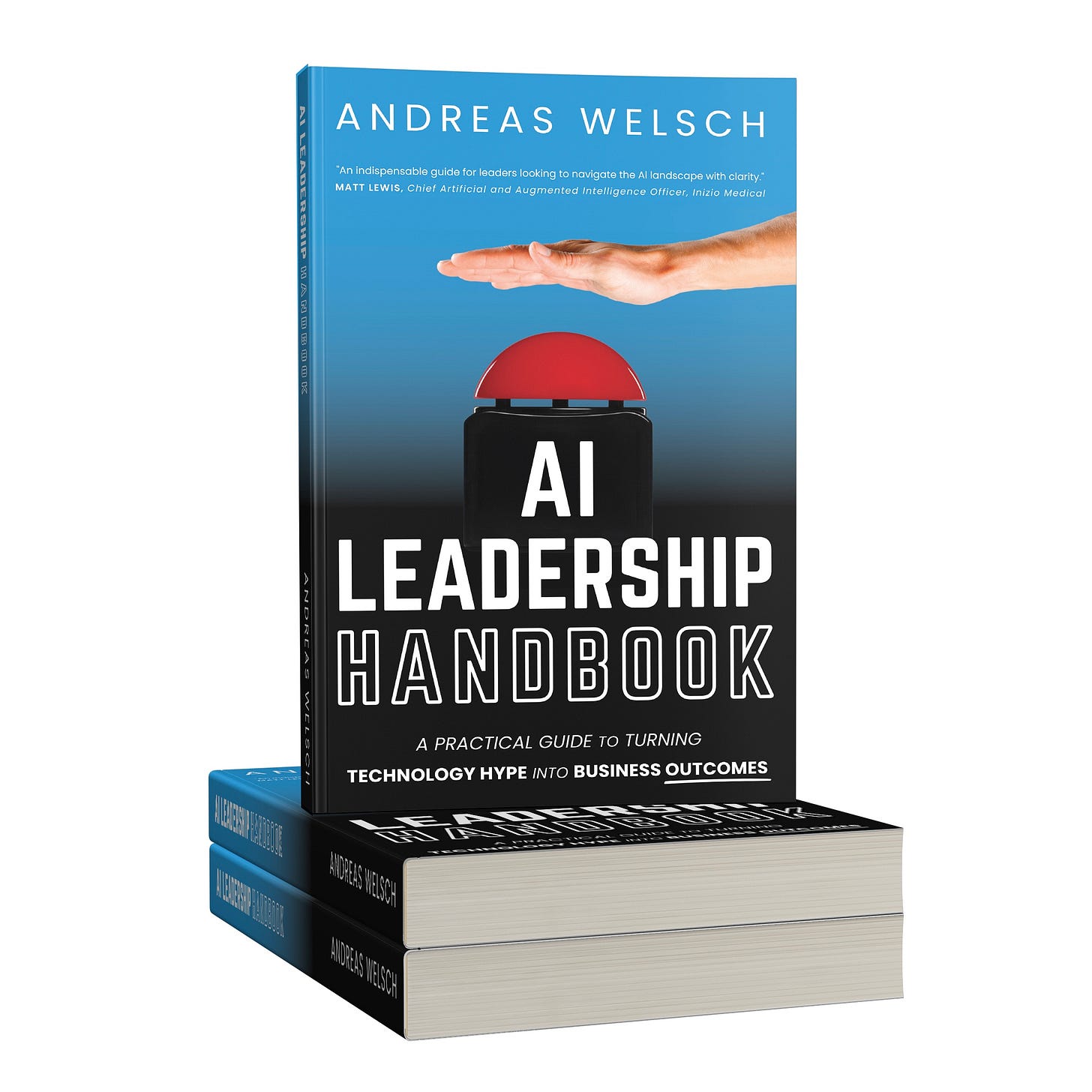Navigating The New Economy Of Algorithms: What Leaders Need To Know
How Economic Agents, Digital Minions, And Shadow AI Are Shaping How We Work
On July 30, Marek Kowalkiewicz (Professor & Author) joined me on “What’s the BUZZ?” and shared how work will change with AI agents. AI agents are quickly becoming integral to operations in today's rapidly evolving business landscape. As we shift towards an "economy of algorithms," leaders must adapt to new challenges and opportunities. But where should you start? Here is what we’ve talked about…
The Rise of Algorithms as Economic Agents
We are witnessing a significant shift from an economy dominated by corporations and individuals to one increasingly influenced by algorithms and software agents. These digital entities are not just passive tools; they are active participants in the economy, creating and consuming value in ways that were unimaginable just a few years ago.
This new "economy of algorithms" is characterized by interactions that go beyond traditional business-to-business (B2B) or business-to-consumer (B2C) models. Instead, we are seeing the emergence of business-to-algorithm (B2A) relationships, where algorithms can operate autonomously to some extent, making decisions and performing tasks that would have previously required human intervention.
For business leaders, this means rethinking how value is created and distributed within their organizations. The role of algorithms is expanding, and with it, the need to understand how these digital agents can be leveraged to enhance productivity, drive innovation, and maintain a competitive edge. As we move further into this new economy, it will be crucial for leaders to develop strategies that incorporate the benefits of AI while addressing the potential risks and challenges associated with these powerful tools.
Level up your AI leadership game with the AI Leadership Handbook
Andreas Welsch uses real-world knowledge and examples from interviews with over 60 leaders and experts in AI to help you both introduce and incorporate AI into your organization, from aligning it with your business strategy to turning new-to-AI employees into passionate multipliers to making sure humans stay at the center of your AI use. After reading this book, you will be able to confidently implement AI in your business, no matter your industry.
Supervising AI Agents for Intended Results
While the capabilities of AI and software agents continue to grow, it is essential to recognize that these systems are not infallible. They can generate ideas and make decisions that might surprise us, but they also require careful oversight to ensure they function as intended. The analogy of digital minions is fitting: AI systems are always ready to help but need clear instructions and continuous monitoring to avoid unintended consequences.
» You think you're prompting them, but perhaps they're prompting you now. «
— Marek Kowalkiewicz
One of the key challenges for leaders is to balance leveraging AI's strengths and ensuring that human judgment remains a central part of the decision-making process. This is particularly important as AI becomes more integrated into business operations.
To mitigate these risks, leaders should establish protocols for AI oversight that include regular reviews of AI-generated outputs, clear guidelines for when human intervention is required, and a commitment to transparency in how AI systems are used within the organization.
Monitoring Shadow AI as a Side-Effect of Increased Productivity
Recently, a new challenge has emerged: managing "shadow AI." This term refers to the use of AI tools by employees outside of the organization’s official processes and policies. While shadow AI can lead to increased productivity and innovation, it also poses significant risks, particularly when employees automate their tasks without the knowledge or oversight of their managers.
Rather than discouraging AI tools, organizations should aim to open up these activities and provide the necessary support and training to ensure that AI is used effectively and responsibly. This includes creating a culture where AI is not a taboo subject but a open discussion and collaboration topic.
Additionally, leaders should be aware of "phantom AI," where employees mistakenly believe their colleagues are using AI tools when they are not. This can create a toxic work environment and undermine trust within teams. Leaders should promote transparency around AI use and ensure all employees have access to the same tools and training, leveling the playing field and fostering a collaborative approach to AI adoption.
Summary
The shift towards an economy of algorithms presents both opportunities and challenges for business leaders. Leaders can navigate this new landscape by understanding the role of algorithms as economic agents, ensuring human oversight of AI systems, and managing the use of AI within their organizations. As AI continues to evolve, the key to success will be developing the skills and strategies needed to harness its potential while mitigating its risks. By doing so, leaders can improve productivity and innovation and create a more transparent and collaborative workplace where both humans and AI can thrive.
In what ways are AI agents already shaping your behavior and decisions?
Listen to this episode on the podcast: Apple Podcasts | Other platforms
Explore related articles
Become an AI Leader
Join my bi-weekly live stream and podcast for leaders and hands-on practitioners. Each episode features a different guest who shares their AI journey and actionable insights. Learn from your peers how you can lead artificial intelligence, generative AI & automation in business with confidence.
Join us live
September 10 - Book Launch with several special guests (incl. Matt Lewis, Brian Evergreen, Maya Mikhailov, Harpreet Sahota, Steve Wilson, and Paul Kurchina) and an update on what AI leaders need to know on AI strategy, transformation, stakeholder management, and security.
September 24 - Steve Wilson, Project Leader, OWASP Foundation, will be on the show to discuss red-teaming and safeguards for LLM applications.
October 17 - Nicole Wieberneit, Go-To-Market Leader, will join and share how to enable your sales team on AI.
Watch the latest episodes or listen to the podcast
Follow me on LinkedIn for daily posts about how you can lead AI in business with confidence. Activate notifications (🔔) and never miss an update.
Together, let’s turn hype into outcome. 👍🏻
—Andreas







